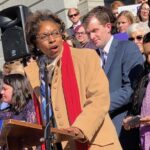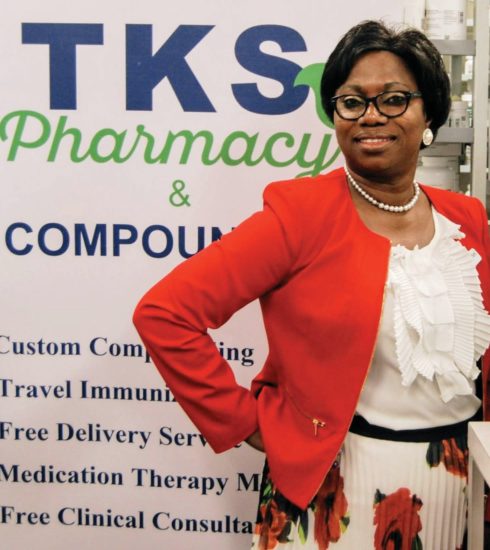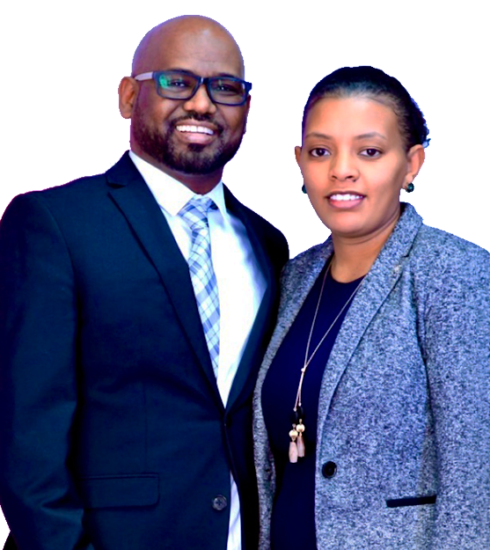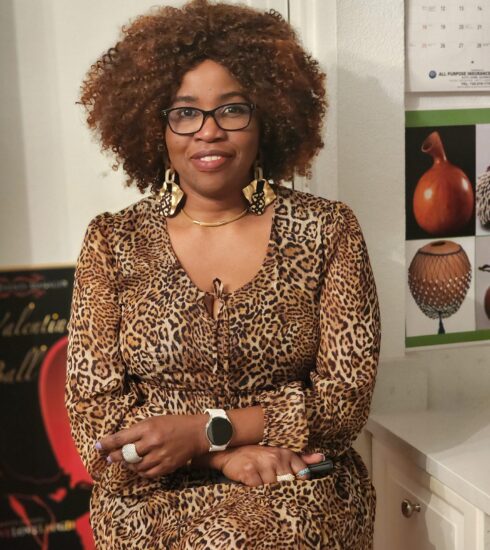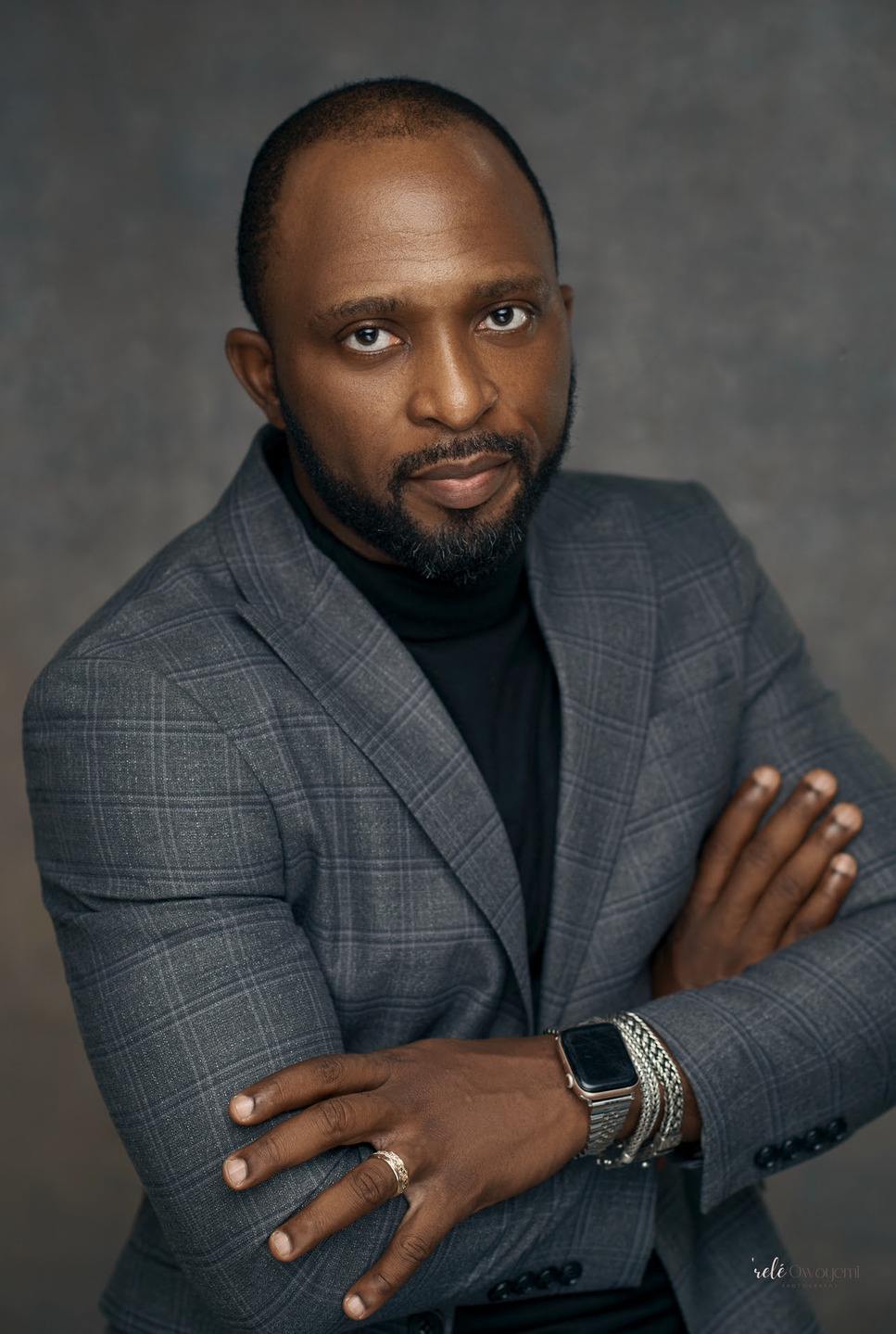
Dr. Michael Sunbola is the founder of the Lagos Food Bank Initiative. He has raised almost $2million in cash and food to provide hunger relief to over 2.4 million vulnerable women and children within and outside Lagos
Dr. Michael Sunbola is an award-winning Social Entrepreneur, an Obama Leader, a seasoned food system activist, a Community Mobilizer, an SDGs Advocate, a Legal Practitioner, and the founder of the Lagos Food Bank Initiative. To many he comes across as a workaholic and very serious person who has little or no time for socials. While that may be true to an extent, there is a side to him that most people don’t get to see. He has a passion to help people and make an impact. As a matter of fact, it’s as if he’s in a race against time to touch so many lives in one fell swoop.
He is a foremost thought leader in Community Mobilization, Social Entrepreneurship, Volunteering, Leadership, Community Development, Social Impact, and Advocacy. Michael is also a Gratitude Network Fellow, Perennial Fellow, SIP Fellow, and French African Foundation Laureate. He currently serves on the Food Systems Taskforce (FST) for the implementation of the National Food Systems Transformation for Nigeria. He has been profiled by Forbes Magazine, Redrick Public Relations, and various Nigerian National Dailies, as one of Nigeria’s young social entrepreneurs.
Through his work, Michael has raised almost $2 million in cash and food alongside 25,000 volunteers at the initiative to provide nutrition intervention, hunger relief, dietary counseling, and job placement to over 2.4 million vulnerable women and children across different underserved and far-to-reach communities within and outside Lagos.
As part of his initiative to support food-insecure families, he piloted a family farming program to improve women’s contribution to household agriculture and gender equality. This program has been scaled to reach over 500 vulnerable women in Lagos.
Tolulope Omotunde of AfrikDigest International Magazine got to chat with him recently where he got to share more about his initiative. Enjoy
AfrikDigest: Can you please introduce yourself so our readers can get to know you?
Dr. Michael Sunbola: My name is Michael Sunbola and I am a legal practitioner by profession. I am a social entrepreneur, an Obama leader, a community mobilizer, an SDGs Advocate, a food system activist, and a humanitarian at heart. I am the Executive Director of Lagos Food Bank Initiative and currently serving as a member of the board of trustees. I am also the Managing Principal at Pundit Barristers & Solicitors. My passion is centered around ending hunger and malnutrition in all its forms and helping to move closer to a hunger-free Lagos and eventually, across Nigeria.
AfrikDigest: What inspired you to start the Lagos Food Bank Initiative?
Dr. Michael Sunbola: Having experienced food insecurity as a growing child and what it feels like to go to bed hungry on several occasions, starting the Lagos Food Bank Initiative was inevitable for me as a humanitarian at heart. Noticing the food or hunger gap in society and the fact that food is a basic need for survival, which is clearly not available to all. With over 40% of the Nigerian population estimated at risk of experiencing food insecurity, I became concerned even as a legal practitioner and felt the aching need from within to sort of address this essential need for humanity. So, it is my personal experiences as a child which were challenging, coupled with my desire to solve basic human problems and bring hope to people in need of support that fueled the start of the Lagos Food Bank Initiative.
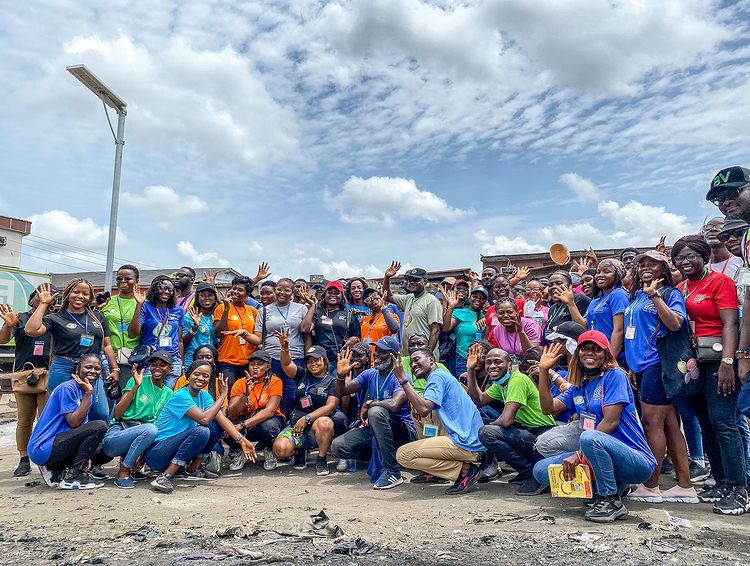
LFBI Volunteers
AfrikDigest: Can you tell us a few of the challenges you faced when carrying out activities for the Foodbank?
Dr. Michael Sunbola: The food bank has its fair share of challenges just like other non-profits operating within the third sector however it is important to note that overcoming a challenge is an important learning point for every organization. One of our major challenges has been funding, especially at the inception of the food bank as the concept of food banking is quite new in Africa and was almost non-existent in Nigeria. It was tough to secure the trust and commitment of corporate bodies, possibly due to the existing notion that a lot of people have about NGOs in Nigeria however, due to our track records of impact and transparency we have proven and still proving ourselves to be a credible organization which appeals to the goodwill of individuals and organizations. We have also intensified our fundraising efforts to ensure we reduce the effects of food insecurity and its consequences within these communities.
Another challenge we have faced is the lack of policies that favor the food bank and its activities. For example, the Good Samaritan Act (Good Samaritan law offers legal protection to people who give reasonable assistance to those who are, or whom they believe to be in emergencies) which is found in different countries is not applicable here in Nigeria as such, there’s no form of legal protection and encouragement for donors of food and grocery products to nonprofit organizations for distribution to needy individuals.
AfrikDigest: Since the launch of the Lagos Food Bank, what has been the general response from the public?
Dr. Michael Sunbola: Since the launch of the Lagos Food Bank, we have received an overwhelmingly positive response from the public. Also, there has been a great level of support from our volunteers, corporate volunteers, communities, companies, and organizations. Many people have shown interest in the Lagos Food Bank and have actively participated in various ways including volunteering and donating. The public’s support has been significant in enabling the Lagos Food Bank to expand its reach and impact, thereby helping to address food insecurity and alleviate hunger.
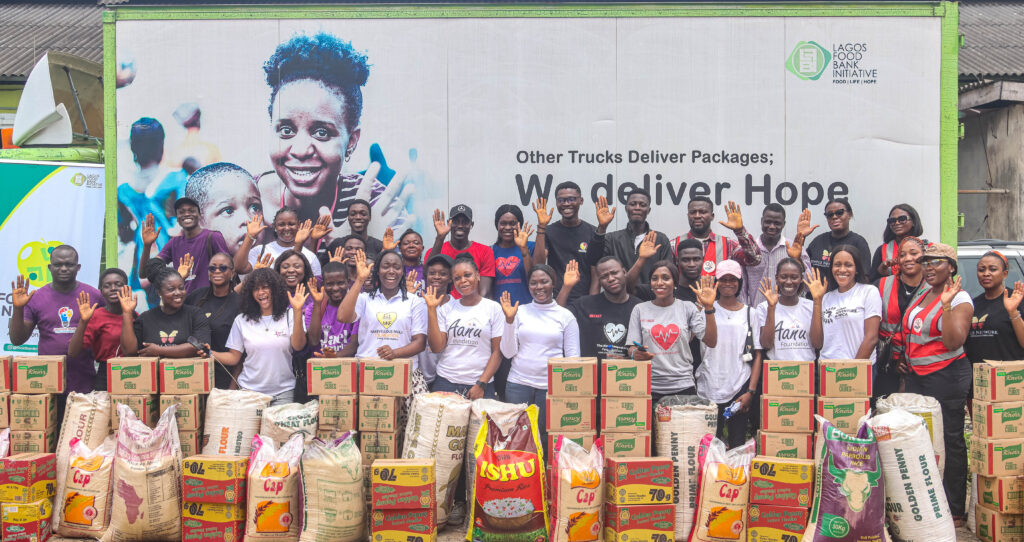
Partner NGOs Distribution
AfrikDigest: I am sure you have seen the food bank change from 2016 when you started operations, then throughout the COVID-19 pandemic, and now. Can you tell us how?
Dr. Michael Sunbola: The food bank has undergone a tremendous amount of changes and growth over the past eight years, much of which happened especially in 2020 as a result of COVID-19. The food bank being the first in Nigeria came up at a time when people were not thinking of such, and so in 2016 when the food bank started, it focused on providing immediate nutritional relief to vulnerable families within Lagos and was able to serve over 16,000 vulnerable individuals partnering with 4 organizations.
As the food bank grew, the vision grew as it became apparent that the level of food insecurity within the nation was quite alarming. Through research on solving the key issues surrounding food insecurity such as hunger, malnutrition, and poverty, the food bank developed targeted programs that addressed the growing need and now in 2024, has developed 9 programs that cut across nutrition, sustenance, and food/agricultural recovery.
As the years went by, the food bank had strategically positioned itself to provide relief in different communities across all 20 local government areas within Lagos and partnered with NGOs, and when the lockdown happened in early 2020, it was easy to put in place measures to mitigate the sudden increment in food insecurity levels. Through strategic partnerships with national, international, and multilateral organizations, and leveraging on connections within our database, the food bank continues to grow and has been able to serve the most vulnerable in society.
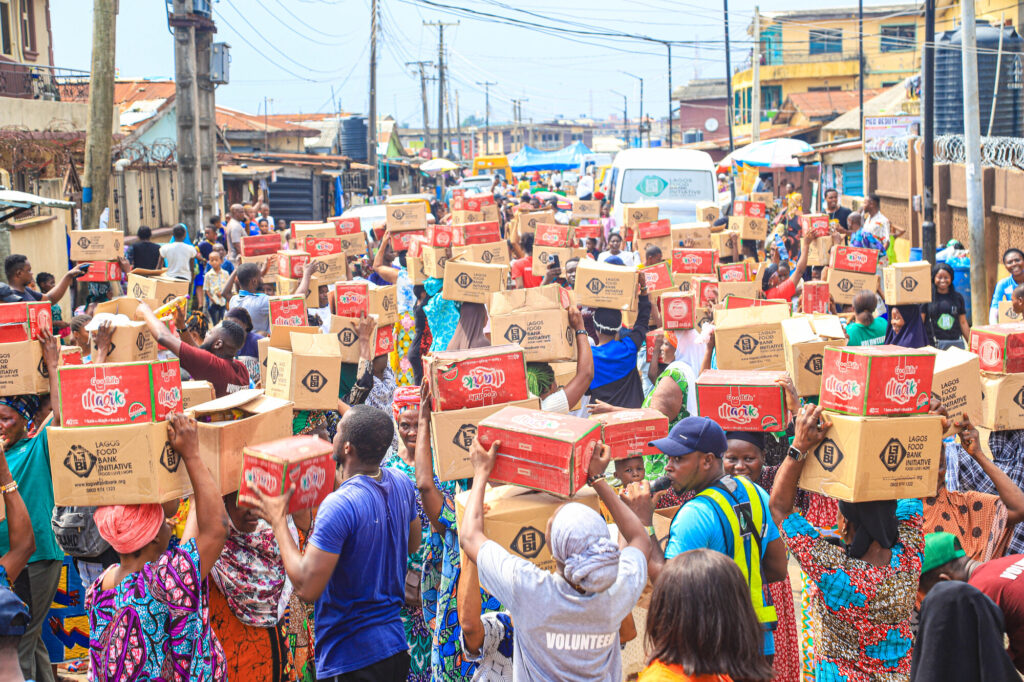
AfrikDigest: Can you share with us a few statistics on the impact of the Lagos Food Bank over the years?
Dr. Michael Sunbola: In the last eight years, the Lagos Food Bank has reached over 2.4 million individuals across 160 communities through nine (9) programs within Lagos and across Nigeria through partnerships with over 500 organizations who supported the food bank with monetary, staple food, product, and personal care item donations to further our reach within low-income communities with a manpower of over 24,000 volunteers in our database.
On average each year, we impact the lives of over 300,000 individuals directly through our community intervention programs. In addition, the food bank currently has a network of over 150 non-governmental organizations where it supplies food to local food bank partners and credible non-profit organizations across Nigeria. This program is designed to reach more communities and beneficiaries outside the food bank’s immediate reach.
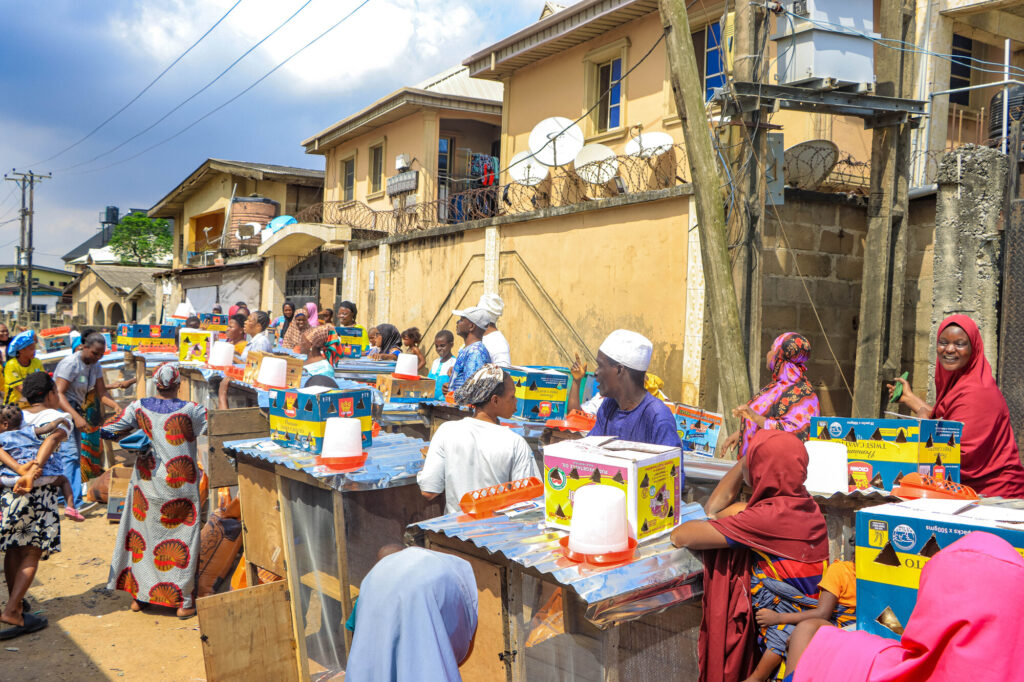
Family Farming Empowerment
AfrikDigest: Has the government (state or federal) reached out to you to support or commend your efforts?
Dr. Michael Sunbola: Yes, the food bank is currently partnered with the Lagos State Government’s Ministry of Agriculture to support our urban farming-based program (Family Farming) and the Lagos State Emergency Management Agency (LASEMA) in 2020 as we got a permit which allowed us unrestricted access to reach more vulnerable people during the pandemic. We have also received visits from the LASG Office of the SDGs to discuss the impact of our work through our targeted programs to achieve Sustainable Development Goals (SDGs) across the various communities we serve.
AfrikDigest: I know the food bank initiative started in Lagos, how many states of the federation have you branched out to now?
Dr. Michael Sunbola: Through our Food Bank Network Nigeria (FBNN) we have reached 9 states in Nigeria as we partner with reputable NGOs with whom we share common goals by supporting their outreach activities with food items and relief materials in far-reaching communities.
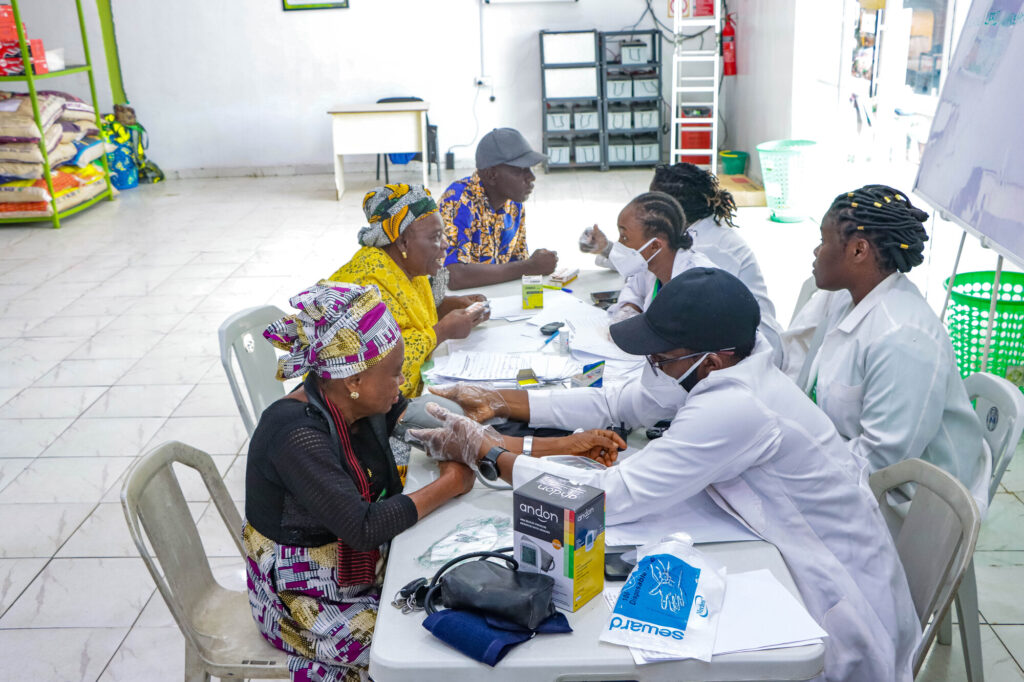
AfrikDigest: A lot of people in Lagos as a whole may have probably never heard of you. What plans do you have to reach out to other areas of the state you haven’t?
Dr. Michael Sunbola: We currently have some strategic methods that we are building in order for us to improve our reach to communities within and outside Lagos State and to build more awareness about our operations. Examples of some methods we currently adopt are:
- Partnerships and Collaborations: We forge partnerships with other nonprofits across Nigeria. We partner with other nutrition-focused NGOs who are addressing food insecurity in the target states.
- Media Coverage: We partner with local and national media outlets to share stories about the food bank’s mission, impact, and activities. Press releases, interviews, and feature articles that can help raise awareness.
III. Social Media: We all know that we live in a digital world, we utilize social media platforms such as Facebook, Twitter, Instagram, and LinkedIn to share updates, success stories, volunteer opportunities, partnership opportunities, etc. to engage with our wide community which cuts across different regions to reach a broader audience.
AfrikDigest: How have you been able to fund the operations of the food bank initiative?
Dr. Michael Sunbola: Fundraising for a non-profit is never an easy task and is one of the most crucial and important factors that determine the sustainability of an NGO. The funding of Lagos Food Bank’s operations comes from local corporate donors, international grants, individual donors, the sale of our branded merchandise, fundraising events, and donations from non-governmental organizations.
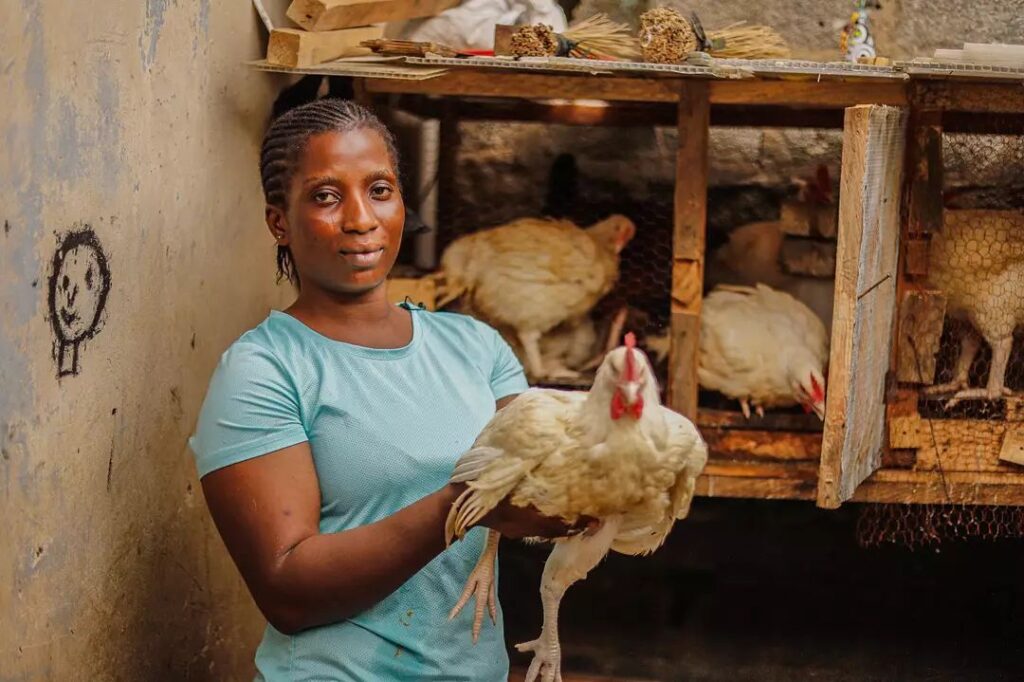
Family Farming
AfrikDigest: You run the initiative mostly through volunteers, what has the response been like? Are people coming forward to volunteer?
Dr. Michael Sunbola: The response from volunteers has been overwhelmingly positive. We’ve been fortunate to have a dedicated and passionate group of individuals who have generously offered their time and skills to support our initiative. Our volunteers come from diverse backgrounds and bring a wide range of experiences, which enriches our organization and allows us to effectively fulfill our mission. Their commitment and enthusiasm have been instrumental in the success of our programs, and we are incredibly grateful for their ongoing support
AfrikDigest: How do people meet the criteria (if any) for the food bank’s services and offerings?
Dr. Michael Sunbola: Our major requirement is a dedicated heart to serve humanity, and the willingness to volunteer their time to support the different initiatives of the food bank.
AfrikDigest: Can anyone volunteer and what are some of the opportunities?
Dr. Michael Sunbola: Yes, we welcome all types of people to volunteer with the food bank. The minimum age for volunteering with the food bank is 12 years, however, all volunteers under 15 would need to be accompanied by an adult.
We currently run both physical and virtual volunteering activities where people who are within Lagos can join us for outreaches, box packaging activities, and other programs of the food bank. The virtual volunteering activity allows interested participants to volunteer their skills from locations across the country.
We also appreciate them through the issuance of a Certificate of Community Service and recommendation letters to those who have completed a certain amount of volunteering hours across the food bank programs. Our prestigious LFBI Volunteer Awards recognize the excellence of exceptional volunteers throughout the year during volunteering. We organize an annual End of Year celebration for our volunteers to appreciate and celebrate their contributions.
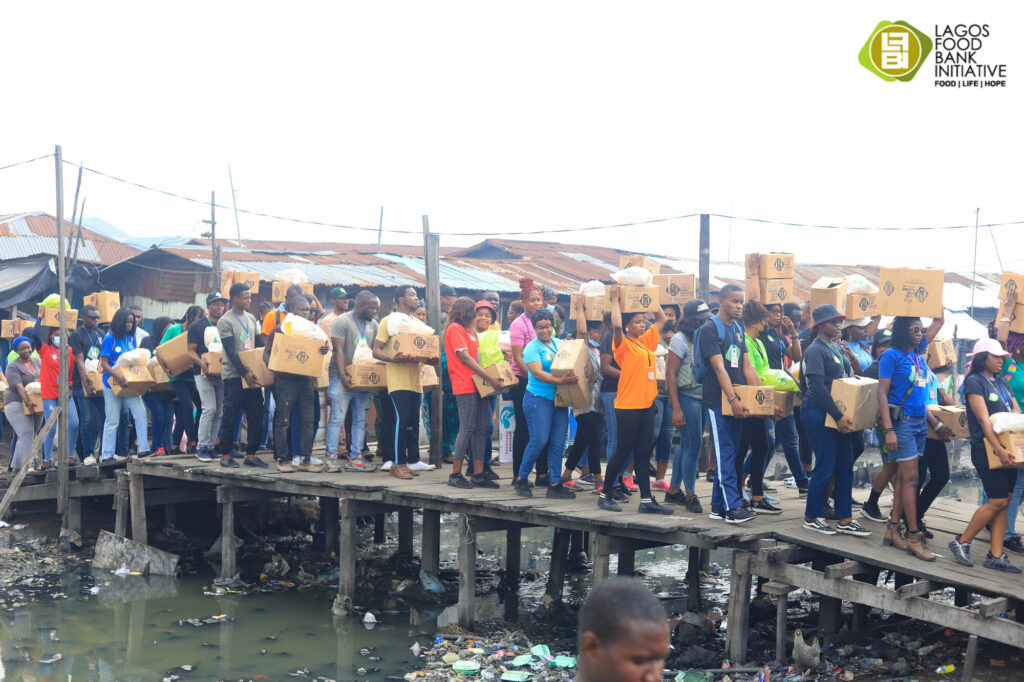
TEFAP Volunteers
AfrikDigest: You clearly have a passion for combating hunger. What advice do you have for the government in ensuring food is abundant for the populace?
Dr. Michael Sunbola: In my food banking journey, I have seen first-hand the effects food insecurity has on vulnerable individuals and also the potential Nigeria has in turning this around. My advice will be to provide easy access to funding and create partnerships with organizations within the civil society. The civil society is known to be closer to those at the grassroots level and can give accurate information about their needs. Also by implementing policies and investments that support local agriculture and surplus recovery on a large scale across the nation while also improving infrastructure to encourage the emergence and growth of more food banks nationwide.
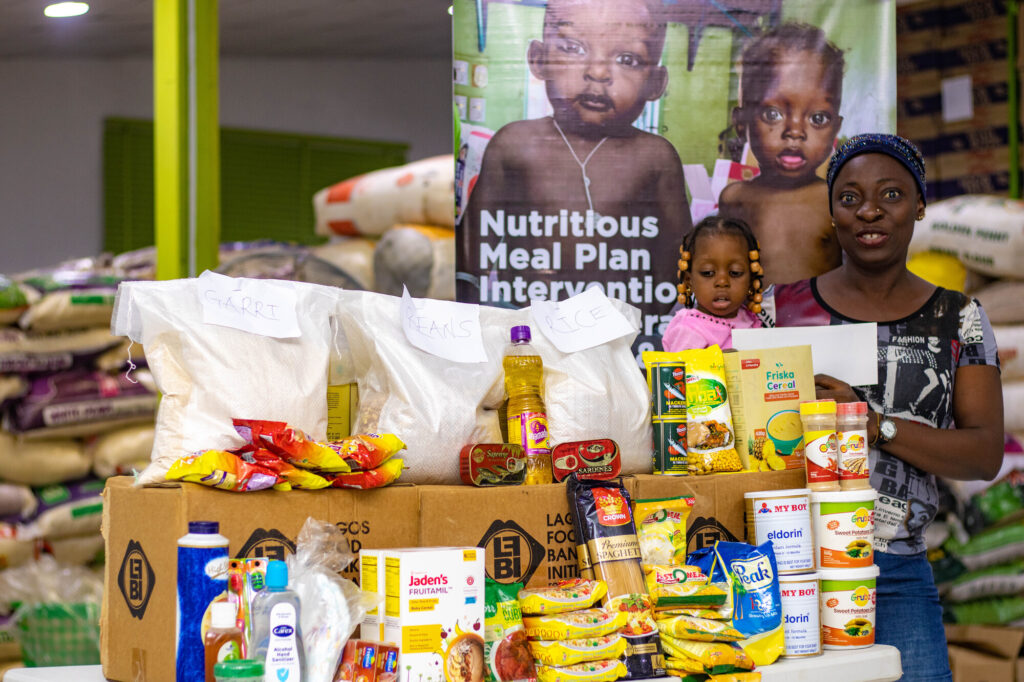
AfrikDigest: Are you still open to partnering with more donor organizations?
Dr. Michael Sunbola: The food bank is always open to partnerships from donor organizations and even from individuals. We believe in the value of partnerships because hunger and food insecurity affect people from different spheres of life and so we encourage such collaborations that will improve the lives of the most vulnerable within the country.
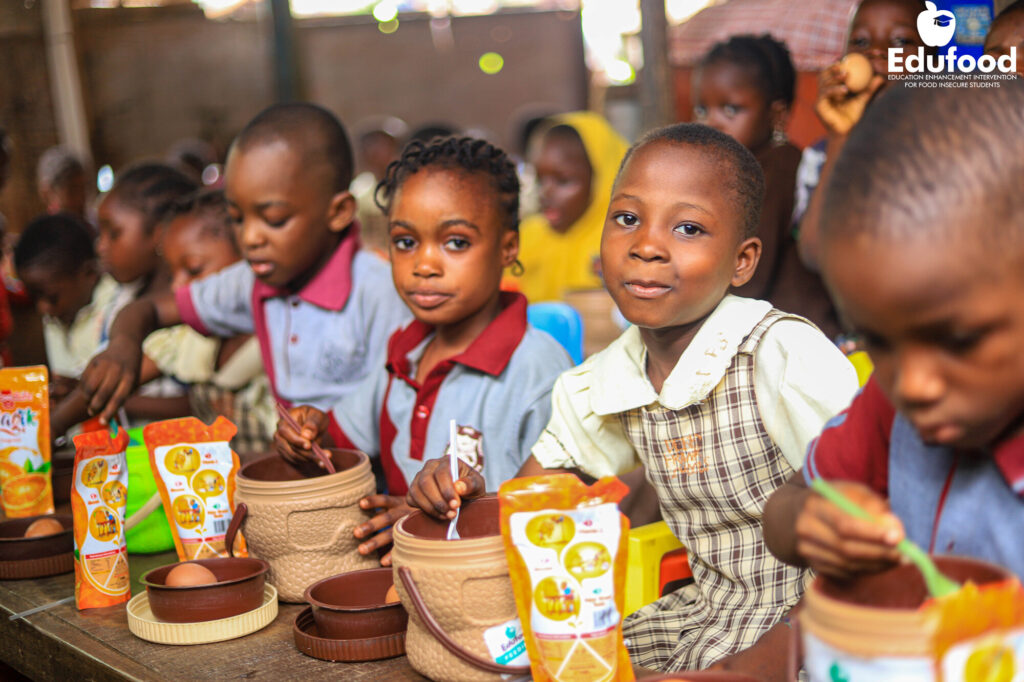
AfrikDigest: What are the best leadership lessons you have learned from leading a non-profit organization like yours?
Dr. Michael Sunbola: There are quite a lot of leadership lessons I have learned over the years, but some stand out and are very useful for anyone in the journey of serving humanity through the operation of a non-profit. Among the multitude of lessons, a few of them include knowing that consistent hard work is a quick way to build a successful life and that being equally intentional sets you on a path to reaching your full potential. A popular poet once said “No man is an island, no man lives alone,” and this is one of the principles I live by. You have to step out of your comfort zone and build a community of people who you can share ideas, strategize with, and truly depend on both in the good and challenging times. And finally, achieving anything worthwhile in life requires being focused and having the commitment to see things through to the end at the cost of all other possibilities.

